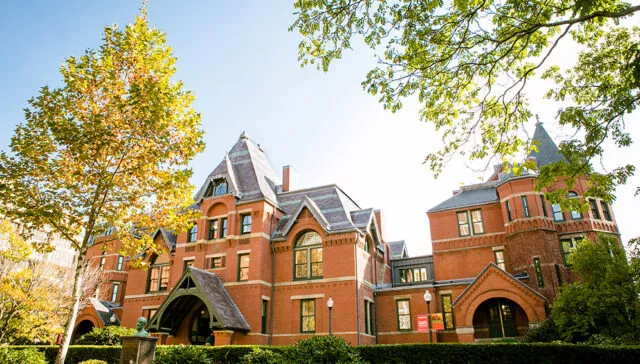Developing a new generation of public health technologists

About five years ago—before I knew much about public health—I worked as an engineer and data scientist on a team developing technology for detecting infectious disease exposure. This was during a time when the global health community was learning from the aftermath of the 2014 Ebola outbreak in West Africa, so our company invited an infectious disease doctor to give a talk. She shared her experiences treating Ebola patients in Sierra Leone, highlighting the challenges practitioners faced on the ground. One issue that stood out to me was related to delays in receiving diagnostic test results, which hindered efforts to control the epidemic. As it turns out, the person responsible for transporting blood samples to the testing lab did not have enough money for gas. The problem wasn’t a lack of technology; it was a lack of access to technology.
Today, we have seen the same dynamics play out with the Covid-19 pandemic, exemplified by the inequitable distribution of the Covid-19 vaccine. The biotech industry led a remarkable effort in successfully developing the vaccine, but the new technology alone cannot end the pandemic. Addressing the social issues underlying vaccine access remains a major challenge. High-income countries have controlled most of the vaccine supply while lower- and middle-income countries continue to bear the brunt of the pandemic. In this case—like in the 2014 Ebola outbreak and many public health crises before that—the technology exists, but the core issue remains: the inequitable distribution of resources.
The Next Generation of Public Health Technologists
Recognizing the limitations of my technical training drove me to pursue a Master’s in Public Health (MPH) two years ago; I wanted to gain a deeper understanding of the social inequities that limited access to health-generating technologies. While my jump from technology to public health seemed non-traditional at the time, this type of interdisciplinary training may become increasingly common in the wake of Covid-19. The pandemic has piqued interest in public health, evidenced by a surge in applications to MPH programs. Much of this interest has been driven by motives similar to mine: individuals have recognized—or directly experienced—the chronic inequities that underlie public health crises. My hope is that from this pandemic we gain a generation of scientists, engineers, and technologists who are determined to approach public health with humility and a dedication to creating equitable solutions. In turn, public health can greatly benefit from these new perspectives, especially as the influence of technology on health grows.
Facilitating Collaborations between Technology and Public Health
Over my past two years in the Boston University School of Public Health (BUSPH) MPH program, my academic and professional institutions have made intentional efforts to facilitate my own mission to harmonize technology and public health goals.
Here I highlight two recommendations for how institutions can help develop the next generation of public health technologists:
- MPH programs should offer public health practitioners and technologists opportunities to explore their differences and embrace their shared purpose. Some of the most valuable lessons from my MPH experience came from exchanging ideas with fellow students from diverse professional and academic backgrounds. My classmates were case managers, healthcare practitioners, teachers, and everything in between. I learned a tremendous amount from their stories, their work, and their advocacy—particularly learning how to ground my technical work within a broader social context. My classmates challenged my ways of thinking—pushing me to reimagine “innovation” beyond the purely technical solutions I was trained to develop. In return, I helped them consider the role of technology in creating more effective and scalable public health solutions. Our diverse perspectives were bound together by a shared vision for a healthier future for all. The school facilitated this collaborative community in three ways:
- Admitting a diverse pool of students
- Creating spaces for robust discourse, and…
- Establishing a culture centered on the shared values of equity and justice.
- The technology sector should invest in initiatives to train scientists, engineers, and technologists in public health. An example of this is tuition assistance programs, which serve to embed technologists directly in public health institutions. I was fortunate enough to benefit from one of these programs; my workplace recognized the importance of technologists gaining skills and perspectives from the public health sector. The financial support allowed me to spend time and energy towards building relationships with faculty who were leading efforts in public health innovation. Through regular meetings with idea hub at BUSPH, we helped connect teams of technologists from my home institution to public health experts. My experience culminated in a formal collaboration between the two institutions; we are currently developing data analytics to help New England states address the population-level impacts of Covid-19 on mental and behavioral health. This is just one example of how investing in workers and students—and supporting their training beyond their traditional roles—creates opportunities for meaningful interdisciplinary partnerships.
Consistent collaboration between the technology and public health sectors is necessary to develop more effective and equitable public health technology. Leaders from both sectors should establish a culture of interdisciplinary collaboration, particularly among the incoming generation of public health practitioners who have been galvanized by the inequities of the Covid-19 pandemic. Investing in this generation means investing in the future of public health: a future where innovation is rooted in diverse partnerships and the shared goal of equitable access to health-generating resources.
Mark Hernandez, is a recent MPH graduate from BUSPH. He currently works as a researcher and data scientist at MIT Lincoln Laboratory in the areas of public health and disaster response. Mark conducts research that leverages health technologies and data analytics to assess health disparities and the social determinants of health. He is interested in ways to center health equity in technology development.




